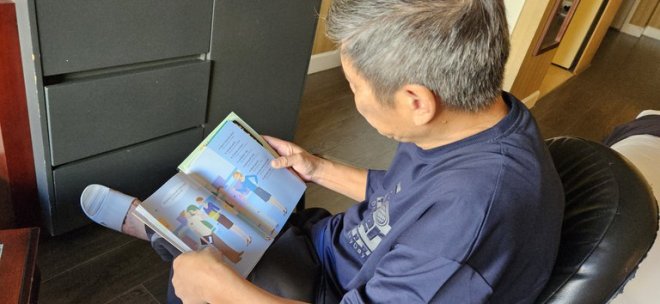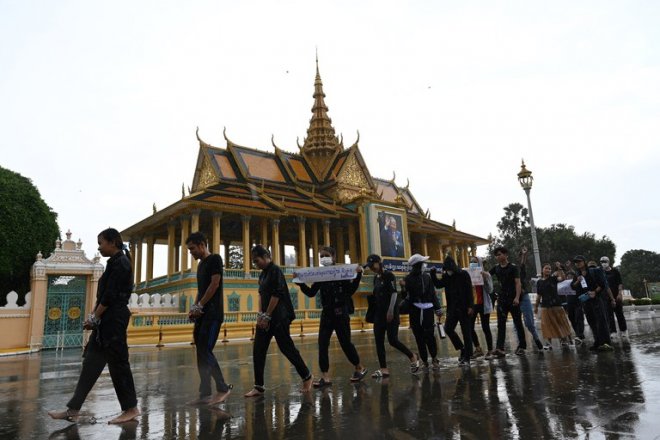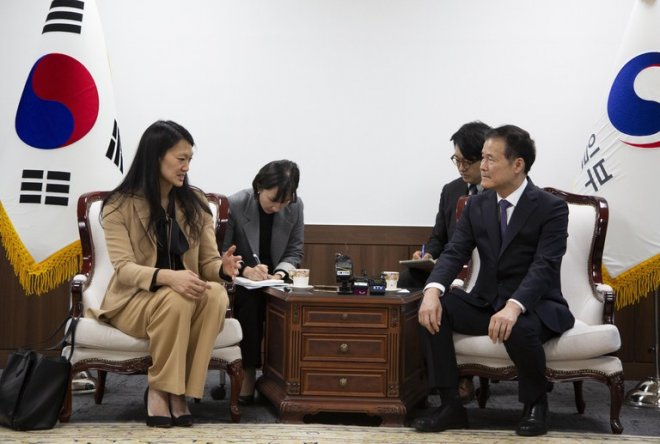Cambodian journalist wins award for cyber-scam stories
Cambodian journalist Mech Dara was presented with an award by the U.S. State Department on Thursday for his reporting about the prevalence of cyber-scam slavery compounds in his country.Dara was one of eight journalists, activists and community leaders presented with a Hero Award by Secretary of State Antony Blinken at a morning ceremony at the State Department in Washington to mark the release of the 2023 U.S. Trafficking in Persons report.
A former reporter with The Cambodia Daily, Phnom Penh Post and Voice of Democracy, Dara led coverage of Cambodia’s scam-compound problem, with locals and foreigners alike being forced to work – under threat of violence – as the perpetrators of online scams targeting people across the world.
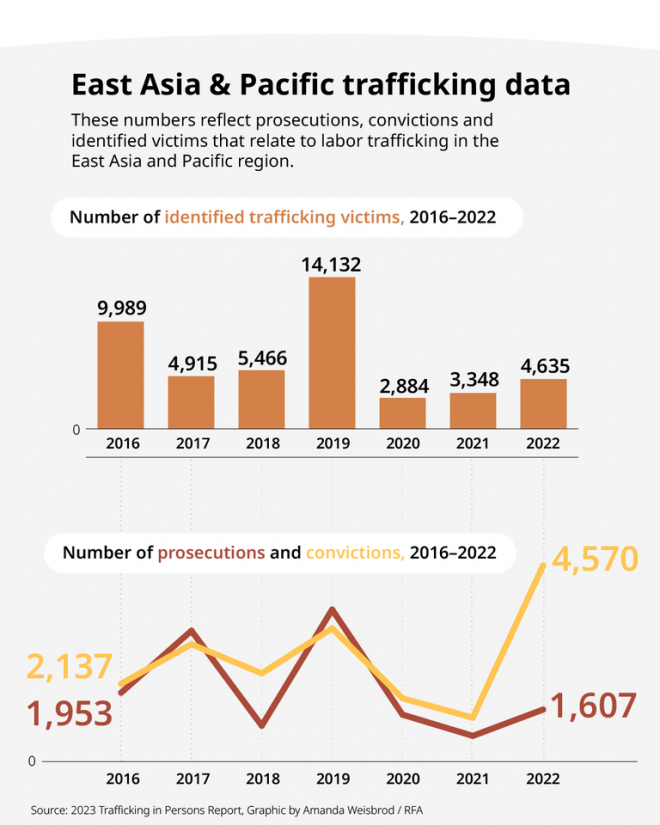
Dara’s reporting on compounds in Phnom Penh and the coastal casino town of Sihanoukville led Cambodian authorities, who initially denied the existence of the compounds, to acknowledge the problem and launch periodic raids on buildings housing the operations.
The compounds are typically run by Chinese crime syndicates with alleged ties to local Cambodian authorities, but one report by Al Jazeera even linked government senator Kok An and Hun To, the nephew of Prime Minister Hun Sen, to some of the operations.
Cambodia’s cyber-scam slavery problem has since been covered by news outlets around the world, including Al Jazeera’s 101 East, The Los Angeles Times, The Guardian, BBC, ABC Australia and Vice.
Cindy Dyer, the U.S. ambassador-at-large for the office to monitor and combat trafficking in persons, praised Dara’s extensive reporting for uncovering the issue and bringing it to international attention.
The award, she said, recognized “his courageous reporting on human trafficking for the purpose of forced criminality in Cambodia, which led to greater public awareness of, and improvement within, the Cambodian government’s anti-trafficking response.”
Trafficking in persons
The 2023 U.S. Trafficking in Persons report says “forced criminality in cyber scam operations” has become a multi-billion industry since the pandemic, as weak economies and travel restrictions have made vulnerable people more susceptible to being tricked into slavery.
“Rather than fulfilling their advertised employment promises, many of these companies began forcing the recruits to run internet scams directed at international targets and subjecting them to a wide range of abuses and violations,” the report says, noting it is becoming a global problem, particularly in remote areas and border towns.
Among other methods, it says, compound owners enslave their victims through “withheld travel and identity documentation, imposition of arbitrary debt; restricted access to food, water, medicine, communication, and movement; and threats, beatings, and electric shocks,” and force them to carry out the scams.
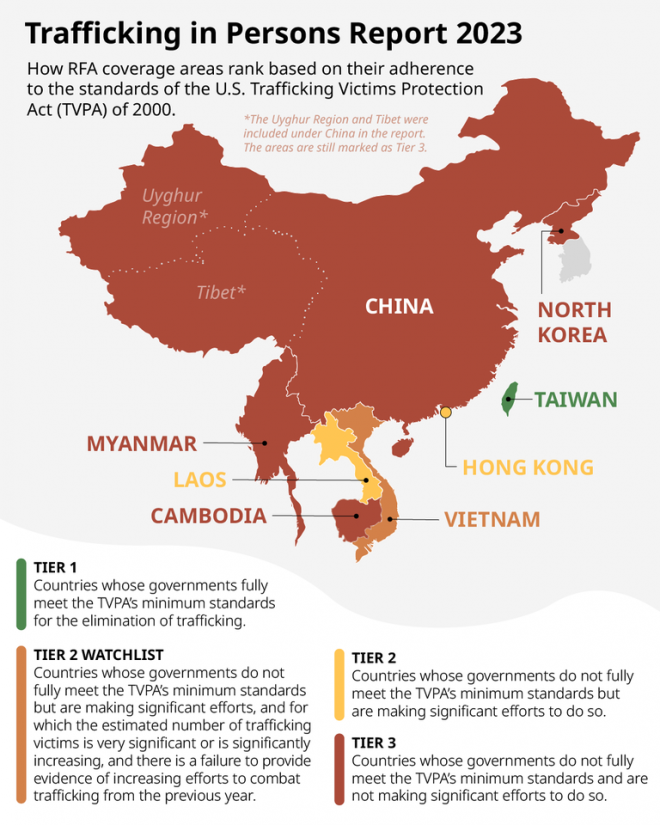
Each year the report also places countries around the world into one of three tiers measuring their government’s efforts to combat human trafficking. Cambodia this year once again placed in the lowest tier, alongside China, Myanmar, Russia and North Korea, among others.
In Southeast Asia, the only better performer this year was Vietnam, which was upgraded from Tier 3 to the “Tier 2 watchlist,” alongside countries like Brunei, Malaysia, El Salvador, and South Africa.
Among the 30 Tier 1 countries – which the report notes “does not mean that a country has no human trafficking problem” but rather “that a government has made efforts to address the problem” – are France, the United States, Seychelles, Colombia and Cyprus.
The only Asian designees in the top tier are Taiwan, Singapore and the Philippines. South Korea, Laos and Hong Kong fall in Tier 2.
[圖擷取自網路,如有疑問請私訊]
|
本篇 |
不想錯過? 請追蹤FB專頁! |
| 喜歡這篇嗎?快分享吧! |
相關文章
AsianNewsCast









